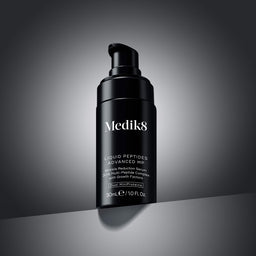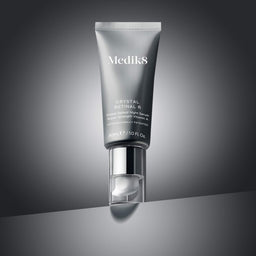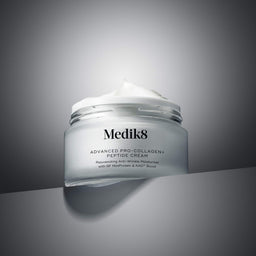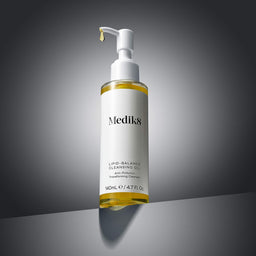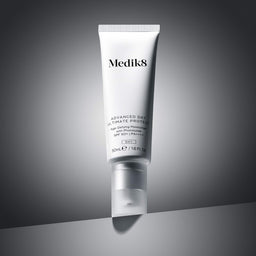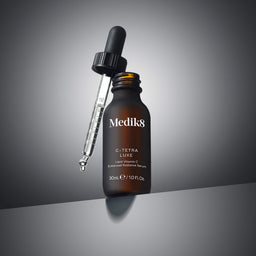How to Use Retinal in Your Skincare Routine
Retinal (retinaldehyde) has taken the skincare industry by storm. It is a powerful form of vitamin A that boasts advanced age-defying properties.Here, we provide an in-depth look at its skincare abilities, the science behind its impact and how to incorporate it into your existing skincare routine for a visibly healthier and more youthful-looking complexion.
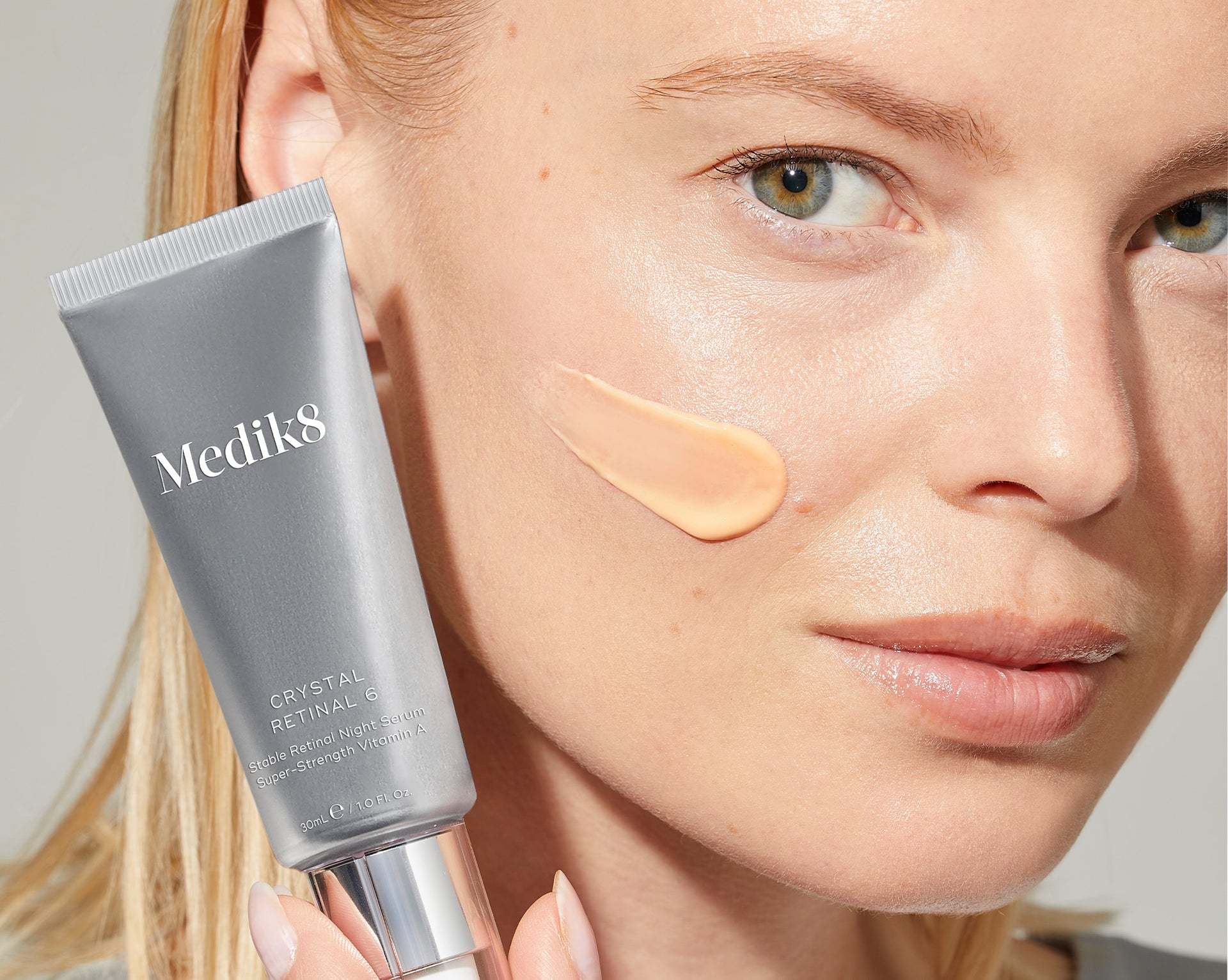
What is retinaldehyde?
Retinaldehyde (retinal for short) is also a retinoid and form of vitamin A. However, it’s further along the vitamin A pathway than retinol, and just one conversion step away from becoming retinoic acid – which means it acts faster on the skin than retinol and boasts other added benefits. However, retinal degrades quickly and is notoriously difficult to stabilise. It is therefore rare to find retinal products on the market that deliver truly noticeable results. That’s where our breakthrough patented stabilisation system comes in.
Is retinaldehyde the same as retinal?
Yes, retinal is just the shorter and easier to pronounce name for retinaldehyde.
How is retinal different from retinol?
Retinal converts to retinoic acid quicker than retinol and, as a result, they perform differently on the skin. When comparing retinal vs retinol, there are several important differences:
1. Retinol is two conversion steps away from retinoic acid (the biologically active form of vitamin A) on the vitamin A pathway. Retinal is just one step away - meaning that it acts faster and has more powerful visible results.
2. Retinal has antibacterial properties - which can help to combat blemish-causing bacteria.
3. Retinal products are harder to make - because it’s an unstable molecule and can lose its potency if exposed, it requires innovative stabilisation systems. Therefore its effectiveness relies on the sophistication of these technologies.
4. Retinal hasn’t been studied as much as retinol (yet) - as such, it isn’t as well understood - however, thanks to new developments and research in the beauty industry, this is changing rapidly. At Medik8, we are continuously conducting independent research studies into the effectiveness of the molecule and Crystal Retinal.
6 ways retinaldehyde benefits the skin
Whether you want to improve skin clarity, enhance your skin’s visible radiance or diminish the appearance of fine lines and wrinkles. Retinal is a multifunctional, age-defying ingredient that delivers on every level.
Retinaldehyde helps to support healthy skin cell regeneration, promoting a plump and firmer-looking complexion with the appearance of fine lines visibly reduced.
Because retinal helps to accelerate skin cell turnover, it can notably improve the complexion’s overall appearance, resulting in smoother, more radiant and even-toned skin.
Retinal also features antioxidant properties, which help to stop free radicals (environmental aggressors) from damaging healthy skin cells and speeding-up the ageing process.
Retinal helps to visibly unify the skin tone by inhibiting the production of tyrosinase - the enzyme responsible for the production of melanin and, therefore, visible dark spots.
Retinal boasts antibacterial (or antimicrobial) properties, meaning that it can help to combat visible congestion along with blemish-causing bacteria. Helping to balance sebum production and support skin cell renewal, it works to promote a clearer-looking complexion - with the appearance of imperfections reduced.
Retinal works to support healthy skin cell renewal, therefore, increasing skin elasticity and visibly resurfacing the complexion to promote more youthful-looking, radiant skin overall.
What skin type is retinal best for?
Anyone can use retinaldehyde, provided that you begin with a concentration that’s low enough for your skin. This is especially important if you haven’t used a retinoid such as retinol before.
Mature and ageing skin: The age defying qualities of retinal are undeniable. It is only one step away from becoming retinoic acid (the biologically active form of vitamin A), and is proven to work 11 times faster than classic retinol.* Therefore, visible results can be seen sooner on the skin.
Blemish-prone skin: Retinal is the only retinoid with direct antibacterial properties, which makes it an ideal choice for blemish-prone skin types. With continued use, it can help to target blemish-causing bacteria and, therefore, leave the complexion visibly clarified and decongested.
Sensitive skin: Retinal is an unstable molecule and, therefore, needs to be stabilised to protect it from losing its potency. As part of our patented stability complex, we encapsulate retinal, which not only ensures that the molecule’s power is preserved, but that it’s gradually released into the skin during the night to minimise irritation.
Younger skin: Retinal can deliver a multitude of benefits for younger skins. It can help to prevent visible signs of premature ageing, as well as clarifying the complexion for brighter, smoother and healthier-looking skin.
What skin types should avoid retinal?
Typically, we recommend everyone to use retinal as it is a more potent form of vitamin A than retinol, to get faster and better results. The main reason someone might go for a retinol product instead is if they prefer the format or texture; for instance we have a line of retinol serums which many prefer as an oil-based liquid texture.
How to select your retinal skincare
When it comes to finding the perfect retinal product for you, there are a few key things to consider.
Concentration: Look for products that offer a choice of strengths so that you can build up your tolerance.
Formulation: Retinal can be found in a variety of different formulations including serums and creams. Our groundbreaking Crystal Retinal serum has been formulated with our unique patented stabilisation technology to ensure optimal potency for visible age-defying results. Available in 6 progressive strengths (0.01-0.24 retinaldehyde) this next-generation vitamin A formula allows you to work your way up for progressive results and no irritation, making it suitable for everyone.
Packaging: Come in air-tight pump dispensers that are NOT transparent (this protects the retinal’s stability).
Additional ingredients: To offset any potential dryness, we include the addition of hydrating ingredients to help boost the visibly plumping and smoothing results of retinal. With the ability to attract and retain more than 1,000 times its own weight in water, hyaluronic acid draws moisture into the upper layers of the skin to leave the complexion feeling deeply hydrated and quenched. A natural humectant, glycerin traps water within the skin and infuses it with hydration - leaving it visibly smooth, hydrated and supple.
Our CSA Philosophy: We believe that every skincare routine should start with 3 fundamental formulas - vitamin C + sunscreen by day and vitamin A by night. We call this the CSA Philosophy. Incredibly simple and grounded in science, use vitamin C and sunscreen in the morning for all-day long protection against environmental aggressors and UV damage which can cause skin ageing. In the evening, apply one of our expertly stabilised retinal formulas that suit all skin types and concerns to ensure optimum youth-boosting results overnight. Our industry-leading Crystal Retinal serums are proven to work 11 times faster than traditional retinol in delivering profound age-defying benefits.*
*G. Siegenthaler et al., Retinol and retinal metabolism, Biochemical Journal, 1990, 268, pp 371-378
How to introduce retinal into your skincare routine
It is important to ensure that you use your chosen retinal product correctly to ensure maximum benefits and optimum age-defying results.
Step 1: Use a gentle cleanser.
Thoroughly remove any dirt, make-up and impurities from the skin with one of our expertly formulated cleansers.
Whether you prefer a cream, oil or foam, our cleansers are specifically formulated for a range of different skin concerns and types to leave your skin feeling perfectly prepped for the next steps in your skincare routine.
Step 2: Apply your retinal product
After cleansing in the evening, apply a small amount of your chosen retinal product onto the skin - for Crystal Retinal we recommend 2 pumps (around 2 pea-sized amounts). You only need to apply a thin layer for it to be effective. If you’re experiencing any irritation, follow with a nourishing moisturiser such as Advanced Night Restore to help soothe and calm the skin.
Medik8 Crystal Retinal serums
Our groundbreaking Crystal Retinal serum is formulated with our unique patented stabilisation technology, ensuring optimal potency for visible age-defying results while remaining gentle on the most sensitive skins. Available in a choice of 6 strengths (0.01% - 0.24% retinaldehyde), this next-generation vitamin A allows you to work your way up for progressive visible results and no irritation. Crystal Retinal is clinically proven to provide incredible age-defying results in just one tube**, including visibly brighter, firmer and smoother-looking skin.
**Proven via independent clinical study on Crystal Retinal 6. Tested on 33 participants over 12 weeks.
Medik8 Crystal Retinal Ceramide Eye
Expertly optimised for the eye area and available in 3 strengths (0.03-0.1 retinaldehyde) for progressive visible results. In the evening, apply a small amount of Crystal Retinal Ceramide Eye around the eye area, avoiding the eyelids.
94% showed a clinical improvement to the look of wrinkles around the eyes with just 1 use.*
*Proven via independent clinical study on Crystal Retinal Ceramide Eye 6 conducted over 12 weeks on 32 participants
Step 3: Use a nourishing moisturiser
Retinoids may cause the skin to become dry. Advanced Night Restore has been expertly designed to be used after vitamin A and features a skin-firming multi-ceramide complex to help minimise dryness and replenish the skin barrier for a nourished and soothed complexion.
Step 4: Apply sunscreen in the morning
Retinal can make your skin more sensitive to the sun, so it is important that you use sunscreen the following morning to protect against damaging UV rays.
How frequently should I use retinaldehyde?
For new retinal users, we recommend to phase-in application gradually to ensure that your skin builds up a tolerance and remains comfortable throughout use. Use it twice a week for the first two weeks, every other night for the following two weeks, then every night.
Tips for reducing irritation and sensitivity
If your skin is new to retinal, you may experience some mild irritation, redness or dryness - especially if you use too much or apply it too frequently.
At Medik8 we have effectively reduced the potential for irritation with our retinal products, infusing Time Release Technology for slow release and minimised irritation. We also recommend introducing it gradually, and starting with a low concentration. With our groundbreaking Crystal Retinal serum, you can ladder up your results with 6 progressive strengths, starting at 0.01% for those with particularly sensitive skin.
Retinoids can make your skin more sensitive to the sun, so make sure to always use sunscreen in the morning when using any vitamin A product.
The bottom line
FAQ's
Anyone can use retinal, provided you start by using a concentration that’s low enough for your skin. Pregnant and breastfeeding women are generally advised against using vitamin A completely. However, Bakuchiol Peptides is a great plant-based vitamin A alternative. A study published by the British Journal of Dermatology,* demonstrated that bakuchiol has very similar age-defying properties to retinol, but without any of the side effects.
Note: Due to ethical considerations, Bakuchiol Peptides has not been tested on pregnant women, but there is nothing in the formula which is known to be an issue during pregnancy (e.g. vitamin A or any high levels of exfoliating acids). If you are at all concerned, always consult your doctor before use.
This depends on your skin type and what you would like to achieve, and ultimately comes down to personal choice.
- For those wanting to ladder-up for progressive results, choose Crystal Retinal.
- If you prefer a lightweight yet oilier, squalane-based serum, choose Intelligent Retinol.
- For those that want an all-in-one vitamin A night cream, use Intelligent Retinol Smoothing Night Cream.
As long as you build your use up gradually and start with a lower strength product to begin with, you should be able to use retinal every night.
For new users of retinal, we recommend that you phase-in application gradually to enable your skin to build up a tolerance and remain comfortable throughout use. Use it twice a week for the first two weeks, every other night for the following two weeks, then every night.
You can begin to use retinal as early as your 20s. For younger skins, retinal can deliver a multitude of benefits. It can help to prevent the visible signs of premature skin ageing, whilst clarifying the complexion for smoother, brighter and healthy-looking skin.
